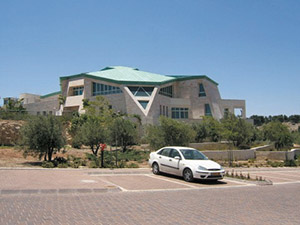
Jerusalem—The recent surge in terrorism in Israel, which reached a new level with the brutal murder of Na’ama and Eitam Henkin (Hy”d) scarcely two weeks ago in Samaria, has put even the usually resilient natives on edge. With the majority of attacks taking place in Jerusalem, and the city, claimed as the capital by both sides, being right in the middle of the conflict, the past two weeks have been taking their toll on locals.
Recent events have been particularly difficult for yeshiva and seminary students, who are less used to the heightened alert level. Many of the areas targeted by Palestinian terrorists, such as the City Center, Yafo Street, and the Central Bus Stations, are locations often frequented by students learning in Israel for one or more years. This has caused many to stop visiting these areas, or for some studying outside of Jerusalem, the capital city entirely. However, a recent visit by this reporter to Ben Yehuda Street still showed many American yeshiva and seminary students present at the Central location, despite the danger of a possible attack.
In order to try to ensure the safety of their students, many programs have instituted partial or full lockdowns on their students’ movements. Michlalat Yerushalayim, a long-standing girls’ seminary and teaching college in Jerusalem’s Bayit Vegan neighborhood, has traditionally been very proactive in restricting their American students’ movements at the first sign of trouble, and this time has been no exception. In reaction to the brutal stabbing attack in the Old City last week, Michlala has forbidden their students from entering there, as well as other more hazardous locations on the border of East Jerusalem.
Other programs, largely those with a student body of mixed nationalities, are taking more of an Israeli approach towards their disciples’ safety, giving warnings and relying on students’ good sense to avoid more dangerous locations. Midreshet Migdal Oz, a predominantly Israeli seminary with a smaller American program, has not officially restricted their students’ movements. They’ve only warned them about the danger of walking from the kibbutz to nearby Efrat via unprotected roadways in the Judean hills, relying on students’ common sense not to go to dangerous places.
Whether or not a program has formally initiated a lockdown or restricted movement, it is important for students to avoid more sensitive and dangerous areas, and to learn basic self-defense and first aid. Many instructions and warnings can be found on the English websites of the IDF, Israeli Police, and Magen David Adom, and information is updated constantly.
For parents who are concerned about their children’s well-being from far away, it is recommended to keep up to date with Israeli news and to make sure to have emergency contact information of relatives and roommates of their children, just in case.
Tehillim groups from chutz l’aretz continue to organize with those sharing concern for the safety of the soldiers and civilians of Israel at this difficult and dangerous time.









